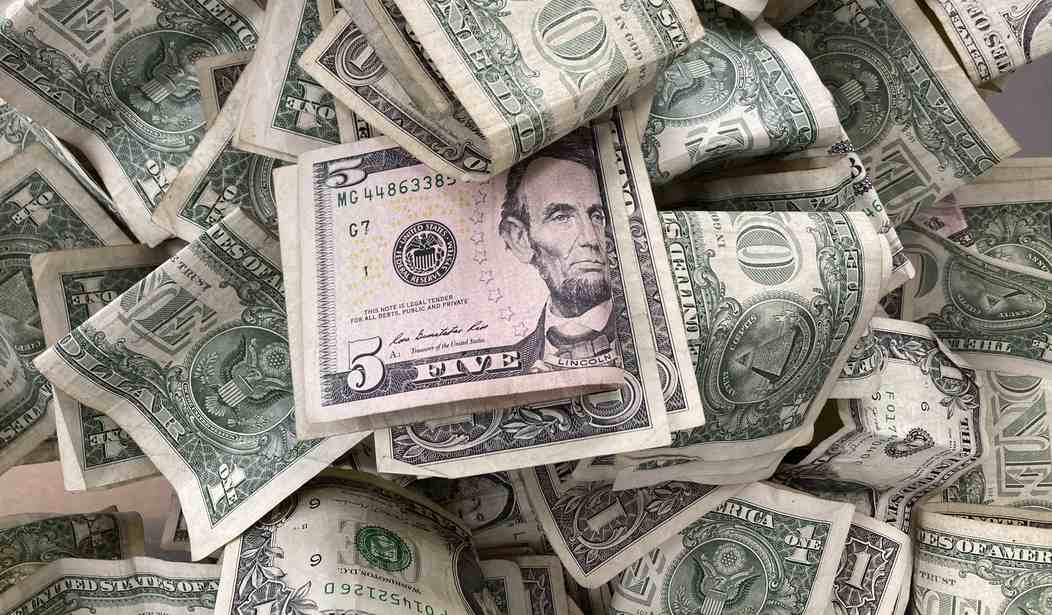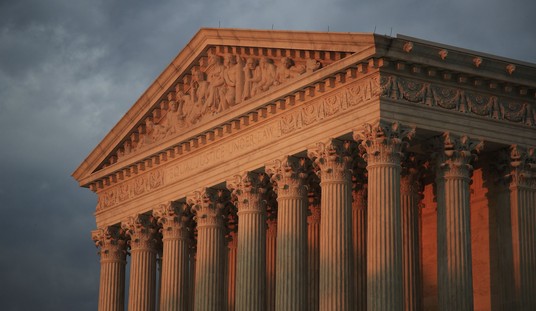On Sunday night, CNN's John Harwood tweeted out a take on inflation so stunningly tone-deaf, as well as hypocritical considering past tweets of his, that our friends at Twitchy put out not just one, but two posts about the ensuing reaction.
in Washington debate, inflation is "crushing" families
— John Harwood (@JohnJHarwood) May 23, 2022
in real life, pandemic relief has eased the pain
Moody's economist: "excess saving cushioned the impact, even for lower-income households
"households are for the most part in a good financial place" https://t.co/jpqJvuYYKn
Harwood, seemingly undeterred by the massive ratio, also tweeted again on Monday morning.
more from Fed survey:
— John Harwood (@JohnJHarwood) May 23, 2022
"Financial well-being also increased among all racial/ethnic groups measured, w/particularly large increase among Hispanic adults.
"Parents reported large gains in financial well-being w/three-fourths saying they were doing at least okay,
up 8% from 2020"
Harwood was sharing his own analysis piece for CNN from Sunday seeking to answer "Why Washington can’t have an honest debate about inflation."
While Harwood did begin his piece by pointing out that "Inflation distresses Americans for very good reasons. It depletes their wallets, creates anxiety about the future and endangers the national economy," that was largely lost on people, given what he highlighted in his tweets.
His analysis claimed:
Recommended
The resulting inflation has indisputably produced economic pain for millions of families, eroding the buying power of higher paychecks. At the same time, they have not been “crushed” badly enough to prevent them from spending at a steady pace.
That’s because families up and down the income scale, thanks to Covid relief checks, generally still have more money than before the pandemic; in the lingo of economic analysts, “household balance sheets” still have “excess savings.” Unemployment has fallen back below 4%.
People didn't take well to being told otherwise when what they've experienced has indeed been "crushing," or that they've felt "crushed."
Do you know anyone who is not ultra rich? Everyone I know is suffering. Every time we fill our gas tanks, go to restaurants or to the grocery store. Talk to some people in the real world and ask them if they feel they are being crushed. I’ll be shocked if less than ?? answer yes.
— LorieByrd (@LorieByrd) May 23, 2022
Shorter CNN: "Who are you going to believe, me or your lying checkbook?"
— Allan (@AllanRicharz) May 23, 2022
So you and the DNC finally became official about your full time shill gig then?
— Andrew Follett (@AndrewCFollett) May 23, 2022
Don’t forget about the 16 cents you save on your 4th of July cookout! pic.twitter.com/lVwXikLNSD
— Andy Lancaster (@andylancaster) May 23, 2022
And a bad economist, too!
— Rebecca Downs (@RebeccaRoseGold) May 23, 2022
I truly hope this rhetoric continues. Tell voters that their financial struggles actually aren’t real, John. Go with that. https://t.co/hbyIH8L2LB
— Anna James Zeigler (@ajzeigler) May 23, 2022
Good news, folks. In the "real world," inflation is good! $5 gasoline is good! Not being able to keep up with your bills is good! https://t.co/12CreFx8sW
— Glenn Jacobs (@GlennJacobsTN) May 23, 2022
Steve Cortes, in addition to saying such a "post belongs in the social media hall of shame for bad takes," offered a more in-depth rebuttal when it comes to the rising costs of items.
A new decade low on U of Mich. Consumer Sentiment, now far below the Spring 2020 lockdown lows.@JohnJHarwood tells American citizens that they're somehow mistaken about their own personal reality? pic.twitter.com/YBuFrFaNTP
— Steve Cortes (@CortesSteve) May 23, 2022
Siraj Hashmi also implied that the List was coming for Harwood.
??uh??oh?? pic.twitter.com/2Akh9PrFlR
— The List (@ListComesForAll) May 23, 2022
Further, Harwood's take is wrong. Larry Summers, who served as Treasury Secretary during the Clinton administration, has been warning for many months that the American Rescue Plan Act was going to lead to inflation. The administration gaslit him for it, hardly a surprising move coming from this White House.
We've discussed at great length last month's CBS News/YouGov poll, which had an emphasis on inflation as a key takeaway. On Sunday, a new poll was released. The numbers continue to get worse for President Joe Biden. While 69 percent disapproved of his handling of inflation in April, 70 percent now do.
Polling on issues, including from Pew, Gallup, Quinnipiac, and FiveThirtyEight, also show that inflation remains a top issue.
Meanwhile, Biden laughably claims that "I think our policies help, not hurt" when he's asked if he bears any responsibility for inflation. Keep in mind, the president claims he doesn't believe the polls, which becomes more and more believable every day that he's in office.
REPORTER: "Do you take any responsibility for the inflation in this country?"
— Townhall.com (@townhallcom) May 10, 2022
BIDEN: "I think our policies help, not hurt." pic.twitter.com/7NkAPikUyN
Again, people really don't take too kindly to tone-deaf takes on inflation. In March, as I highlighted at the time, Bloomberg got dragged through the mud for an opinion piece by Teresa Ghilarducci making bizarre suggestions for how to avoid being affected by inflation if you make less than $300,000, with ideas such as using public transportation, not buying in bulk, going vegetarian, and even forgoing medical treatment for pets.
























